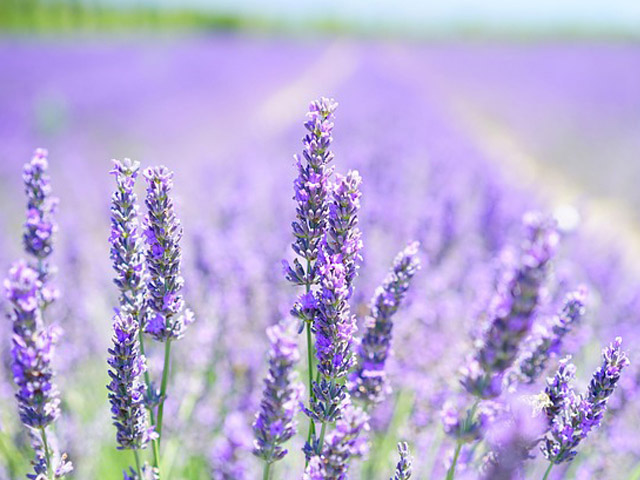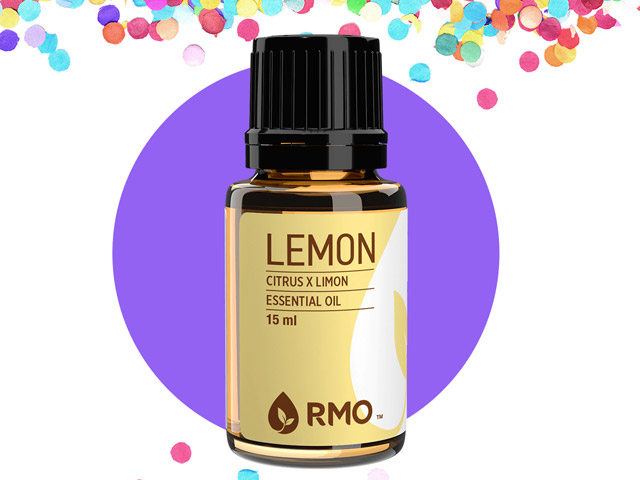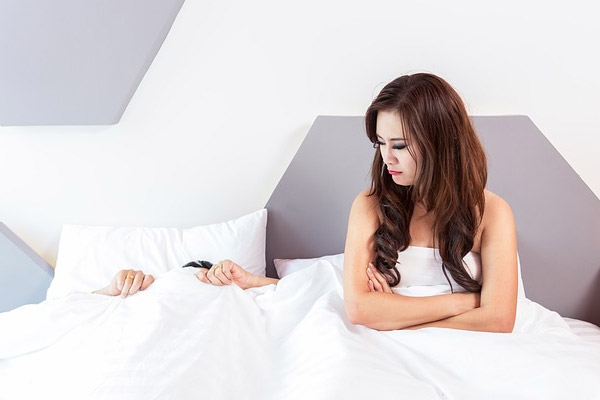Essential Oils for Sleep Apnea
Sleep apnea is a common condition today mainly characterized by interrupted sleep patterns due to involuntary relaxation of throat muscles, of the brain not sending correct signals to respiratory muscles. Although the situation may not pose any risk at first, chronic sleep apnea can start affecting a person's performance, emotional stability, and even worse, cause an irregular heartbeat which could lead to stroke or blood clots. You should therefore consider seeking medical assistance if the condition lingers for more than two weeks. Alternatively, you can use essential oils for sleep apnea to help manage the condition. These oils contain properties and compounds that help prevent involuntary throat muscle relaxation.
Top 8 Essential Oils for Sleep Apnea
1. Lavender Essential Oil

Lavender oil produces a mild fragrance that helps open up the airway thus inhibiting muscle relaxation in and around the respiratory tract. Popularly used for therapeutic applications, lavender oil has proven to help patients with sleep problems and nervous disorders. The diverse healing abilities of lavender oil also promote brain muscle relaxation thus enabling them to control breathing adequately (by sending signals to the respiratory organs). This improves one's sleep patterns significantly making lavender oil an essential home remedy for sleep related conditions.
2. Peppermint Essential Oil
Irritation and inflammation of the nasal lining/passage is another leading cause of sleep apnea in many people today. Peppermint oil helps unblock nasal congestion, and inflammation caused the same enabling you to breathe freely. In addition to helping unblock nasal congestion, peppermint is known to clear pollen and muck allergens from the respiratory tract. This aids in reduced irritation, enabling you to drown into sleep. Adding clove oil and eucalyptus oil in the mix improves its efficiency too. For the best results, diffuse peppermint oil in your bathing water, or even spray it on your pillowcase.
3. Eucalyptus Essential Oil
Eucalyptus oil contains almost similar properties as peppermint oil, only that it is much stronger and more efficient. Eucalyptus oil is used for pain relief and to promote breathing especially with asthmatic individuals or those with a flu. The potent mint properties of eucalyptus oil also help prevent throat muscles from caving in to facilitate breathing with ease. This essential oil is particularly powerful when used in a steam bath. You can also use it in a diffuser to help keep your nostrils open.
4. Valerian Essential Oil
Valerian oil is a powerful home remedy for many health conditions. The oil can be used not only for sleep apnea, but also helps lower blood pressure, calm anxiety, ease menstrual cramps, and improve stress management. The strong soothing properties in valerian oil provides almost instantaneous results for asthmatics struggling to breathe. Using valerian oil in your home diffuser, or adding it to your bath can help improve and aid sleep very efficiently. You could also use a few drops of the same on your pillow to ensure a constant flow/supply of the fragrance even after you are deep asleep. One of the main benefits of using valerian oil is that you not only get to sleep soundly but also reduce chances of snoring loudly. This is because the fragrance inhibits involuntary throat muscle relaxation hence no restricted airflow when you breathe.
5. Lemon Essential Oil

Lemon oil is another popular remedy for sleep apnea and other sleep related conditions. The lemon oil fragrance alone helps open the airway as well as unblock nasal cavities. Aside from this, lemon oil contains other potent properties that induce increased blood supply to the respiratory organs and the brain. This makes it easy for the brain to control muscle contraction and relaxation as one breathes while asleep. The fragrance has a soothing effect that helps the brain relax quickly hence enabling you to contain/manage stress that could be causing disrupted sleep patterns. Adding lemon oil in your diffuser can therefore contribute to improving your sleep patterns significantly.
6. Marjoram Essential Oil
Marjoram oil is one of the most preferred natural home remedies for respiratory allergies, disrupted sleep patterns, and sleep apnea. The oil packs plenty of healthy properties that help relax internal body muscles, promote sleep, as well as calm nerves. While you can add a few drops of the oil to your diffuser, consider rubbing your feet, toes, and even fingers with the oil. Two to three drops of marjoram oil are enough to improve your sleep patterns and quality of sleep. The oil is absorbed directly into the blood stream thus making it highly efficient for this condition. Marjoram oil makes it in the top list of essential oils for sleep apnea in many reviews worldwide.
7. Thyme Essential Oil
Thyme oil is another preferred home remedy for sleep apnea. Thyme oil contains almost similar properties as marjoram oil, though can be used in a diffuser too. For many years, thyme oil has been used to treat/prevent snoring, sleep apnea, and fight respiratory allergens. While the oil should be used topically, it would be advisable to dilute it first. Lavender oil, lemon oil, or olive oil can be used as a carrier oil for this too. Using the combination of all these oils to treat sleep apnea is considerably more efficient hence recommended. You can also use thyme oil to treat many other respiratory related conditions such as asthmas, cold, and flu.
8. Chamomile Essential Oil
Chamomile oil comes in handy in boosting calmness by relieving nervousness. Although chamomile oil may not be as potent as thyme oil, it still helps keep the breathing system in check, hence promoting oxygen supply to all parts of the body. In addition to this, chamomile oil is rich in powerful antioxidants that help keep brain cells healthy. You can also mix chamomile oil with olive oil to improve its efficiency.
Benefits of Using Essential Oils for Sleep Apnea
Although some drugs can help treat sleep apnea, health experts recommend going for natural remedies first before trying out other conventional methods. Some of the main benefits of using essential oils to treat sleep apnea include:
1. Essential oils are purely natural: These oils are extracted exclusively from natural sources and contain little to no preservatives. This reduces any chances of side effects or chemical buildup in the system which could lead to other disastrous effects. These oils also contain vital nutrients needed to keep nerves and cells healthy too.
2. Non-addictive: As tempting as it may be, drugs that promote sleep are highly addictive. Most patients cannot find an ounce of sleep when not on these drugs. Nonetheless, essential oils are non-addictive, meaning you can still do without them. Another added benefit of using natural home remedies is that they effectiveness remains many days after using the oils.
Where and how you get these oils is another factor to consider too. Only source these oils from a certified and trusted dealer to enjoy the benefits. You should also ensure the oils contain little to no preservatives to avoid possible side effects.
Olive Oil is a Great Carrier Oil to Use
Olive oil packs some of the most potent health properties, hence considered a gift by mother nature. Olive oil is remarkably efficient in treating obstructive sleep apnea. While many other oils are used topically, olive oil works best when ingested. Health experts recommend taking a spoonful of pure olive oil just before going to bed. The oil works by promoting blood flow to all body organs, as well as ensure the larynx and pharynx promote increased air flow to the lungs. Olive oil is also believed to promote efficient transmission of electrical pulses to the lungs and the entire respiratory system to improve oxygen supply.


